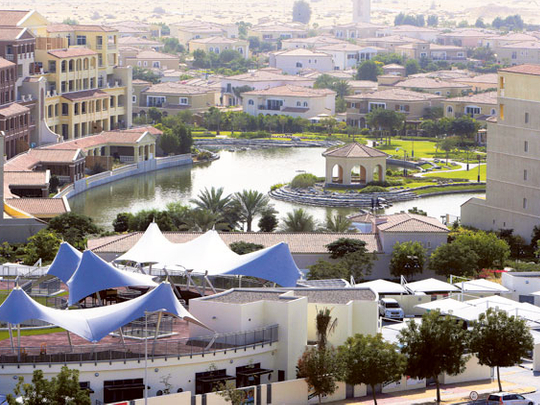
Dubai: Union Properties (UP), which is on course to record first quarter profits of a robust Dh200 million, is scripting a turnaround centred around retail. But rather than go for the massive mall projects, the developer is making the retail push around its communities, existing and new ones.
Spread over 150,000 square feet, ‘The Link’ at Motor City is in the final design phase, while The Ribbon, also at the same community, will add 50,000 square feet of its own. But why decide to go full tilt into creating retail capacity when the developer had always been known for its expansive community-themed developments?
“Because the nature of retail sector in Dubai is rock-steady — you have the sharp upturns and the downside is never an extended one, which was clear enough during the financial crisis,” said Khalid Bin Kalban, chairman of UP. “We looked at our land bank and saw there were opportunities to anchor the community developments with retail stock of our own.
“For instance, at Motor City, currently there is no immediate access to retail or hotels for that matter, and this is a community that will soon have more than 25,000-30,000 people living in or around. If we create the retail destination at Motor City, it will be a popular attraction for all the other new developments coming around us.
“The focus on retail also ties in with our target of enhancing income from our rental portfolio, which is currently at 20 per cent and which we would like to raise to 50 per cent.”
The new retail capacity will also take in Uptown Mirdiff, by adding 250,000 square feet. The flagship Green Community too will see fresh retail stock.
A turnaround
This is quite a turnaround for a developer who was saddled with a debt overload during the crisis and paying off substantial interest charges on them. “We managed to bring about the change without any help from our banks or shareholders, who at the worst of the crisis weren’t sure Union Properties would be able to survive,” said Kalban. “Banks here have a habit of releasing as much funds as possible in the good times and not doing anything when the going gets tough — it’s like asking back the umbrella they lent the moment it started raining.
“Now, we have bankers coming to us saying that it was their predecessors who put the brakes and whether we can go back to doing business with them again. I don’t think it’s as easy as that.”
On whether the company had sold off choice portions of its land bank to get out of the debt pile, Kalban said: “What we sold is only a small portion of the land bank we own, and we had never viewed the asset that was sold as core to our future development pipeline. The land we retain has been booked at cost, but I can clearly say that the real value is much more than the book value.”
Expenses have also been bought down and management and reporting structures streamlined. There are also other ways the chairman is looking to unlock UP’s full value — “There are five companies under UP, which are into services such as facilities management and ancillary services. These are being pushed to be standalone profit centres, and on some, we could bring in strategic partners by selling equity.”











